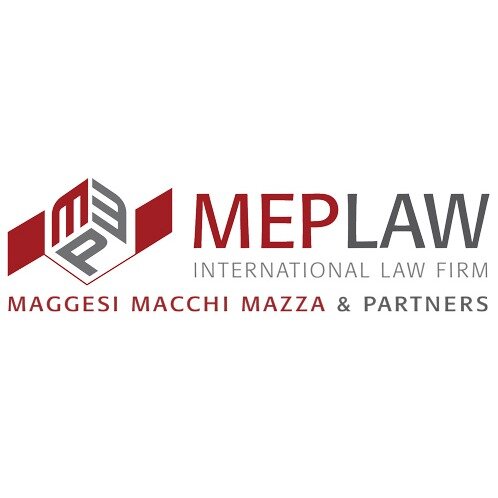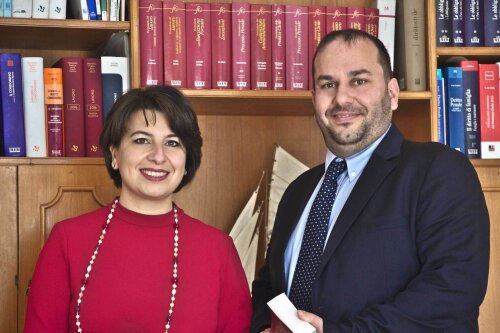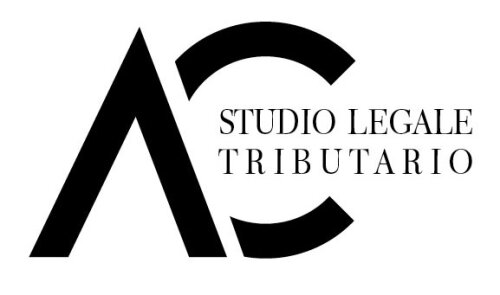Best Constitutional Law Lawyers in Rome
Share your needs with us, get contacted by law firms.
Free. Takes 2 min.
List of the best lawyers in Rome, Italy
About Constitutional Law in Rome, Italy
Constitutional Law in Italy is a crucial area of the legal system, governing the structure, powers, and functions of various political entities, such as the executive, the parliament, and the judiciary. The Italian Constitution, adopted in 1948, is the supreme legal document, influencing laws and policies throughout the country, including Rome. Rome, being Italy's capital, often serves as the focal point of constitutional debates and decisions. Understanding these laws is essential, as they protect fundamental rights and outline the government's framework.
Why You May Need a Lawyer
There are various scenarios where legal assistance in Constitutional Law might be necessary. For instance, if you believe your constitutional rights have been violated by a governmental entity, you may need a lawyer to help navigate the legal procedures and possibly bring a case to court. Constitutional lawyers can also aid in cases involving freedom of expression, religious liberties, or due process issues. Additionally, businesses or organizations might require legal guidance when government regulations impact their operations. Consulting a specialized lawyer ensures that you have knowledgeable guidance tailored to these complex and significant legal matters.
Local Laws Overview
In Rome, as part of Italy, Constitutional Law is primarily derived from the Italian Constitution, comprising 139 articles and numerous amendments. Key aspects include the protection of individual liberties, the division of powers among branches of government, and regional autonomy. Rome's legal environment is also shaped by its status as a significant hub for legislative and judicial activities. Understanding local regulations, how they are applied locally, and their relationship with national laws is essential for anyone dealing with Constitutional Law issues in Rome.
Frequently Asked Questions
What is the role of the Italian Constitutional Court?
The Italian Constitutional Court is tasked with ensuring laws comply with the Constitution. It can declare laws invalid if they are found unconstitutional.
How are constitutional rights protected in Rome, Italy?
Constitutional rights in Rome are protected by both the Constitution and various national laws. Violation of these rights can be contested in court.
Can laws in Rome differ from those in other parts of Italy?
While the Italian Constitution is uniform nationwide, regions, including Lazio where Rome is located, have some legislative powers. However, they cannot contravene the national Constitution.
How do I challenge a government action that I believe is unconstitutional?
Challenging an unconstitutional government action typically involves filing a suit, often with the guidance of a constitutional lawyer. The case may escalate to the Constitutional Court if necessary.
What is the significance of constitutional amendments in Italy?
Constitutional amendments can alter the Constitution's provisions. They require a rigorous legislative process and often reflect significant legal and societal changes.
Do international human rights laws affect Constitutional Law in Italy?
Yes, Italy incorporates international human rights treaties into its legal system, which can influence Constitutional interpretations and protections.
What is required for a constitutional referendum to take place in Italy?
A constitutional referendum can be triggered if a constitutional amendment does not achieve a two-thirds majority in the Italian Parliament or via a petition by the required number of citizens or regions.
Can I represent myself in a constitutional matter, or should I hire a lawyer?
While self-representation is possible, constitutional matters are complex, and hiring an experienced lawyer is often advisable to ensure proper navigation of legal intricacies.
How does the separation of powers work in Italy?
The Italian Constitution outlines a clear separation of powers among the executive, legislative, and judicial branches to ensure governance is balanced and rights are protected.
What role does the President of Italy play in Constitutional Law?
The President of Italy, as a guarantor of the Constitution, oversees adherence to constitutional procedures and can refer legislation back to Parliament or request the Constitutional Court's assessment.
Additional Resources
For further assistance, several resources are available. The Ministry of Justice offers official legal information, while the Italian Constitutional Court provides details on its rulings. Organizations like the Centro Studi di Diritto Pubblico offer research and analysis on Constitutional Law. It’s also useful to consult local universities or law faculties for academic insights or seminars.
Next Steps
If you require legal assistance in Constitutional Law, consider consulting with a qualified constitutional lawyer in Rome. Start by collecting all relevant documentation, understanding your legal issue, and identifying your goals. You can contact a local law firm specializing in constitutional matters or seek recommendations from legal aid services or professional organizations such as the Ordine degli Avvocati di Roma. Ensure to discuss fees, timelines, and potential outcomes during the initial consultation to make an informed decision about your legal needs.
Lawzana helps you find the best lawyers and law firms in Rome through a curated and pre-screened list of qualified legal professionals. Our platform offers rankings and detailed profiles of attorneys and law firms, allowing you to compare based on practice areas, including Constitutional Law, experience, and client feedback.
Each profile includes a description of the firm's areas of practice, client reviews, team members and partners, year of establishment, spoken languages, office locations, contact information, social media presence, and any published articles or resources. Most firms on our platform speak English and are experienced in both local and international legal matters.
Get a quote from top-rated law firms in Rome, Italy — quickly, securely, and without unnecessary hassle.
Disclaimer:
The information provided on this page is for general informational purposes only and does not constitute legal advice. While we strive to ensure the accuracy and relevance of the content, legal information may change over time, and interpretations of the law can vary. You should always consult with a qualified legal professional for advice specific to your situation.
We disclaim all liability for actions taken or not taken based on the content of this page. If you believe any information is incorrect or outdated, please contact us, and we will review and update it where appropriate.















